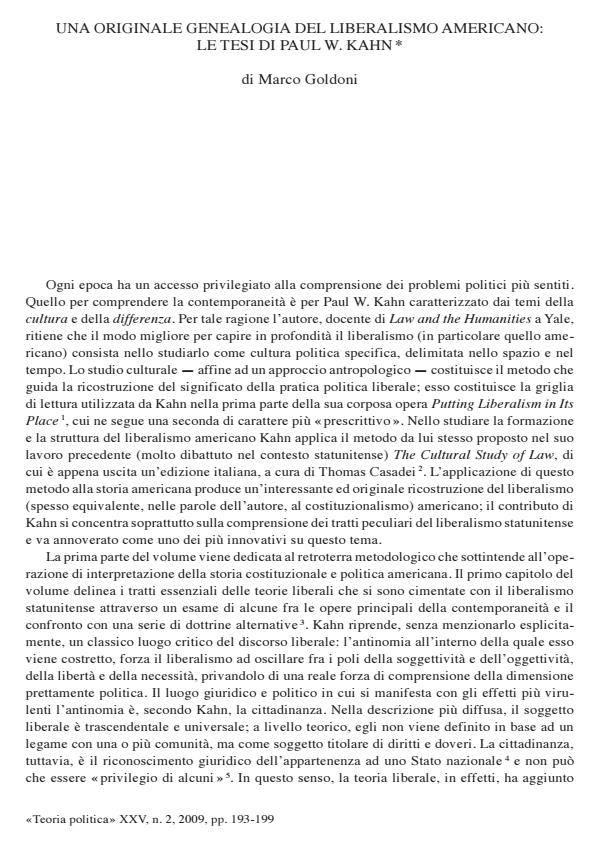Una originale genealogia del liberalismo americano: le tesi di Paul W. Kahn
Journal title TEORIA POLITICA
Author/s Marco Goldoni
Publishing Year 2009 Issue 2009/2
Language Italian Pages 7 P. 193-199 File size 111 KB
DOI 10.3280/TP2009-002011
DOI is like a bar code for intellectual property: to have more infomation
click here
Below, you can see the article first page
If you want to buy this article in PDF format, you can do it, following the instructions to buy download credits

FrancoAngeli is member of Publishers International Linking Association, Inc (PILA), a not-for-profit association which run the CrossRef service enabling links to and from online scholarly content.
An Original Genealogy of American Liberalism: Some Remarks on Paul Kahn’s Theses - An enduring myth portrays the American people as the first modern nation to live in a liberal and selfgoverning polity. Paul Kahn believes in American exceptionalism, but he argues that liberal political theory, as conceived in the United States, does not have the necessary conceptual resources for understanding it. The main limit he sees in classic formulations of American liberalism is to be found in the paralyzing alternative between reason and interest. According to Kahn, contemporary theorists are not able to see the real meaning of American exceptionalism because they don’t have a proper theory of the will. Indeed, only a political psychology that takes into account the role of the will can explain the peculiarity of a nation’s constitutional history. In that respect, Kahn concentrates on the idea of sacrifice to explain the functioning of American constitutionalism and to show the main differences with the evolution of the European Union. However, by following this path, Kahn risks to propose a reductionist account of American constitutionalism.
Marco Goldoni, Una originale genealogia del liberalismo americano: le tesi di Paul W. Kahn in "TEORIA POLITICA" 2/2009, pp 193-199, DOI: 10.3280/TP2009-002011